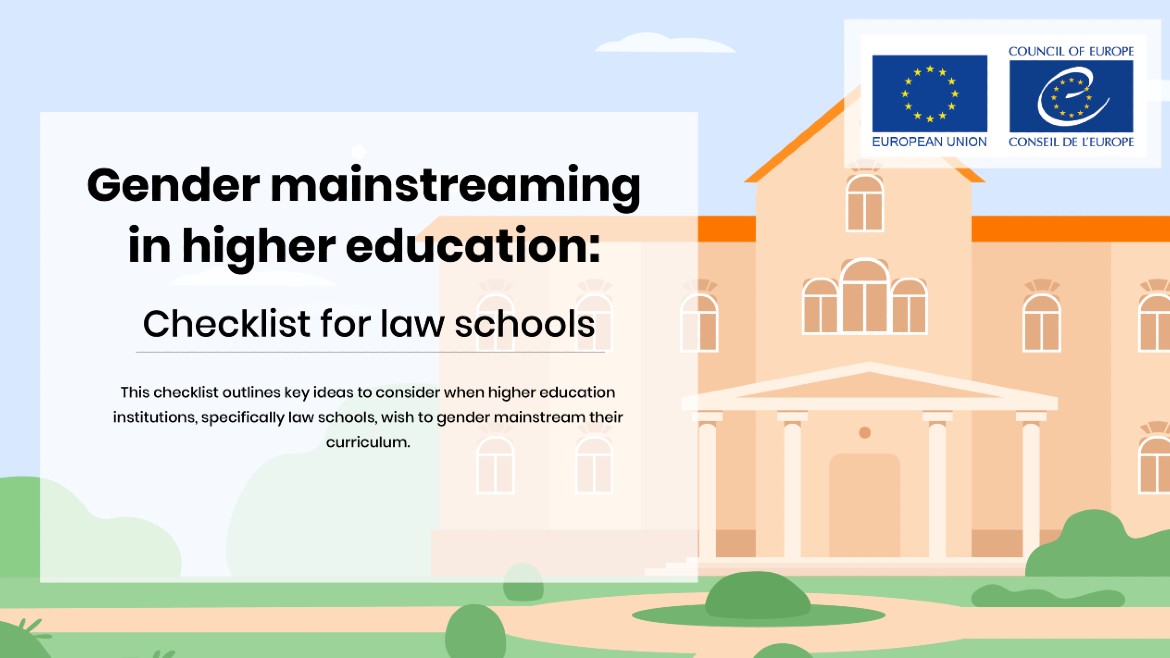There is an urgent need for tools and support networks on gender mainstreaming academia, particularly in view of the impact of Covid-19 on women’s rights and the rising anti-gender sentiments and opposition in several European countries.
We have therefore developed an interactive tool of the checklist on gender mainstreaming law school’s curricula that will allow key staff in law schools (e.g. University management, deans, professors, etc.) to reflect upon and assess the extent to which gender is mainstreamed in law curricula, and to guide them where further actions are needed.
This tool is now available not only in English but also in languages of Eastern Partnership countries: Armenian, Azerbaijani, Georgian, Romanian, Russian and Ukrainian.
The tool has been developed in the framework of the regional project "Women's Access to Justice: delivering on the Istanbul Convention and other European gender equality standards", financed by the European Union and the Council of Europe and implemented by the Council of Europe in their Partnership for Good Governance phase II.
Access the interactive online tool of the Checklist on gender mainstreaming law schools’ curricula: Armenian, Azerbaijani, English, Georgian, Romanian, Russian and Ukrainian





